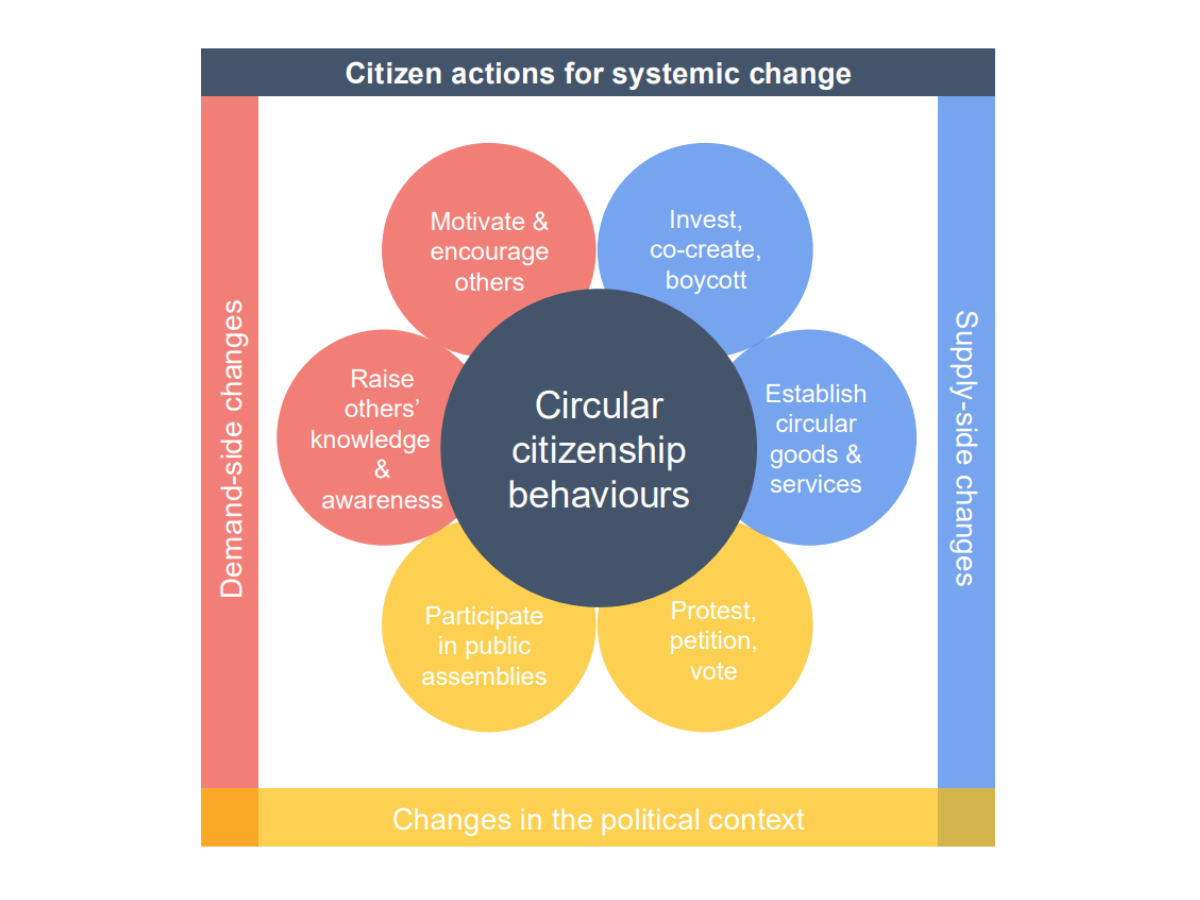
What role can citizens play in accelerating the shift toward a circular economy? A new theoretical framework developed by our colleagues at the University of Groningen sheds light on how individuals can go beyond personal consumption and actively contribute to systemic change to achieve a circular economy.
Drawing on and integrating research across disciplines, the Systemic Change through Citizen Action Framework identifies three key pathways through which citizens can promote circularity at a societal level:
- Influencing governments – Citizens can engage in democratic processes to push for circular policies, laws, or regulations. This includes signing petitions, participating in public hearings, or joining protests and assemblies to advocate for circularity.
- Influencing businesses – Citizens can drive change within their workplaces by advocating for circular practices or products. They can also support circular businesses as consumers or investors, boycott organisations that are not circular, or take part in co-creation processes to shape circular products and services that are attractive and useful for consumers.
- Influencing other citizens – Citizens can use their influence on others by modeling circular behaviors, talking to friends and family about circular practices, sharing information online, or positively reinforcing circular actions in others.
This broad set of actions – aimed at influencing institutions, companies, and peers – is referred to as circular citizenship behaviors. The framework shows that citizens do not need to passively wait for top-down changes to happen. Instead, they can actively shape the transition to a circular economy by engaging with and influencing the system around them.
By Isabel Pacheco – RUG
